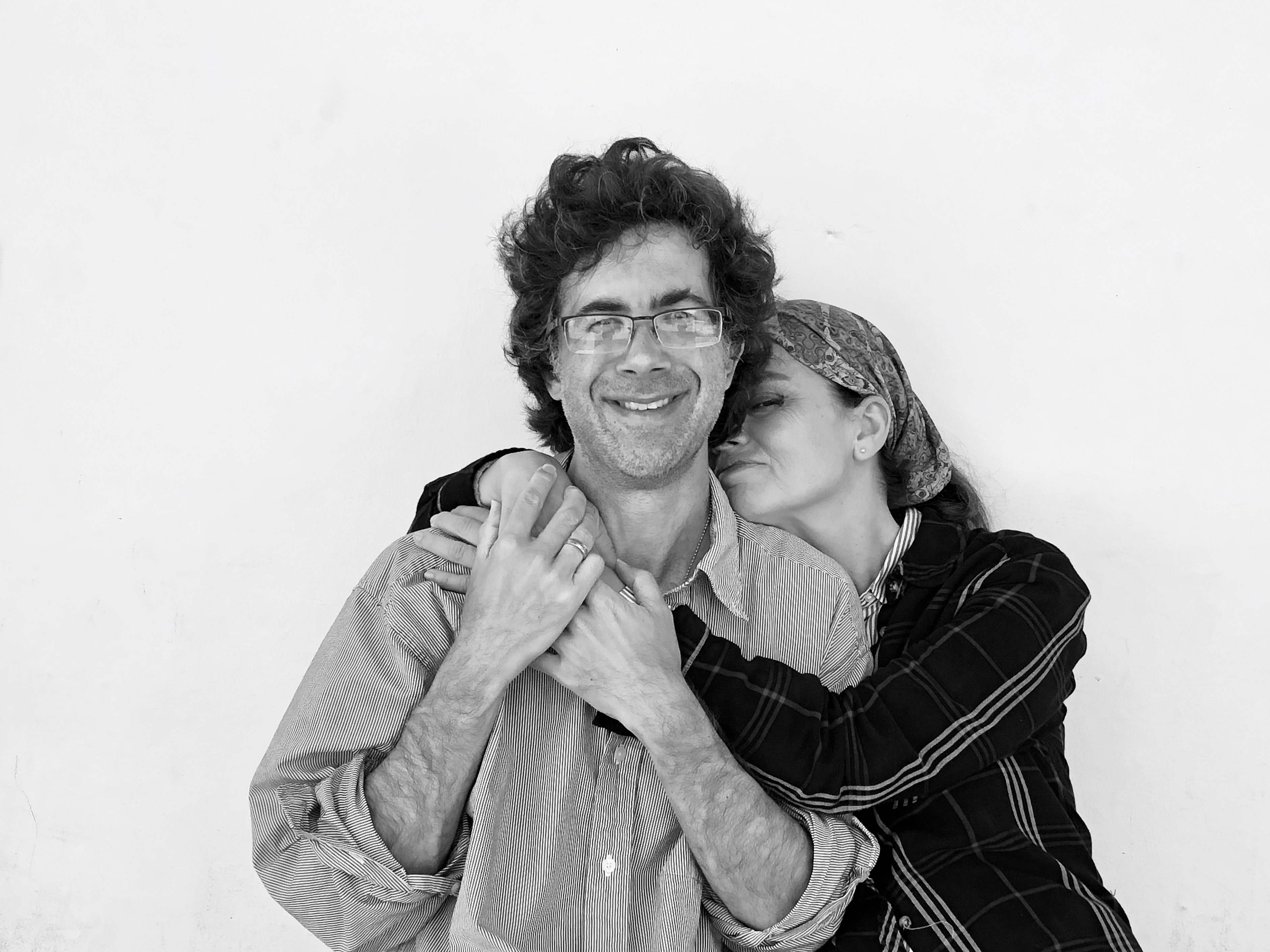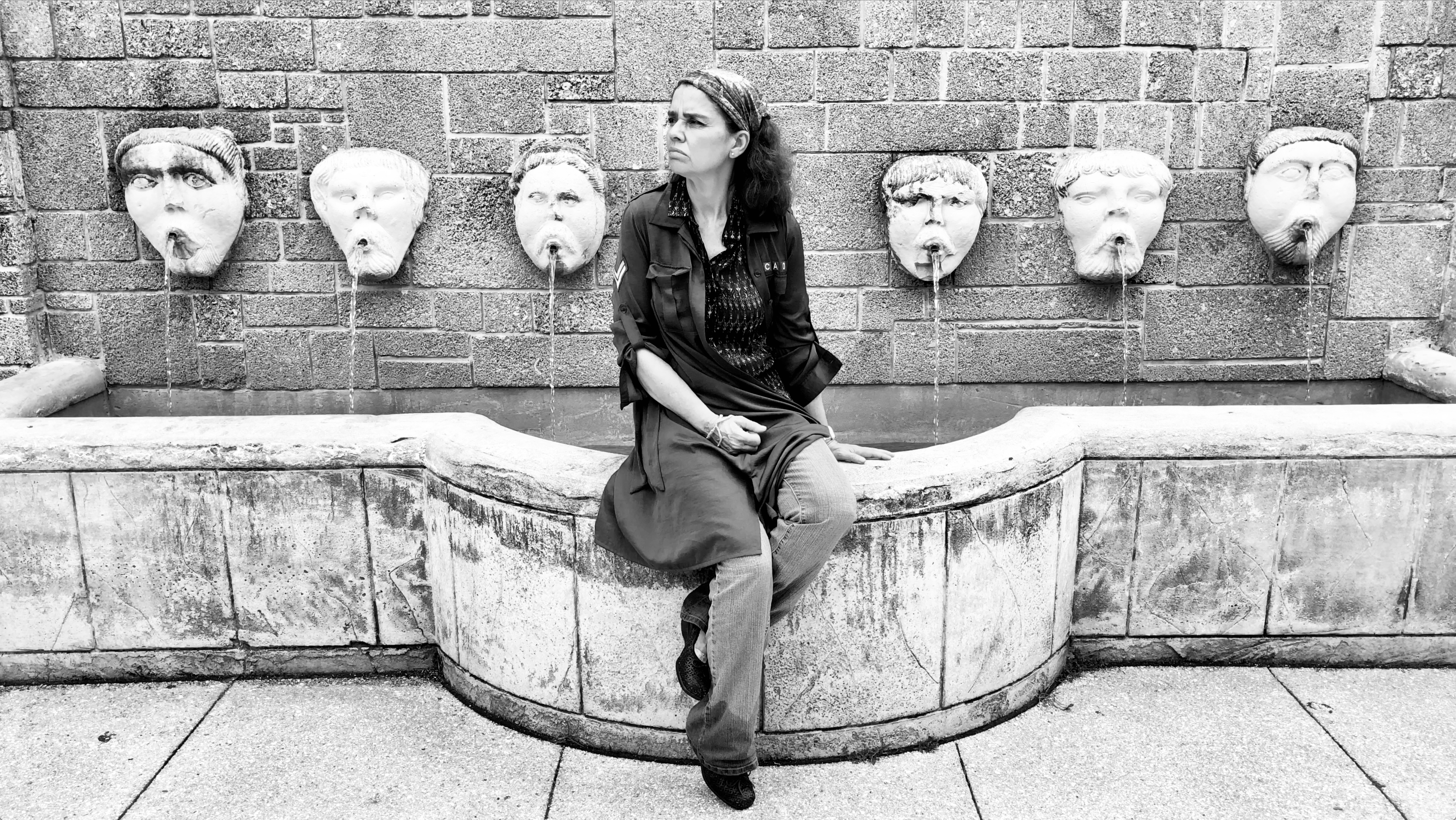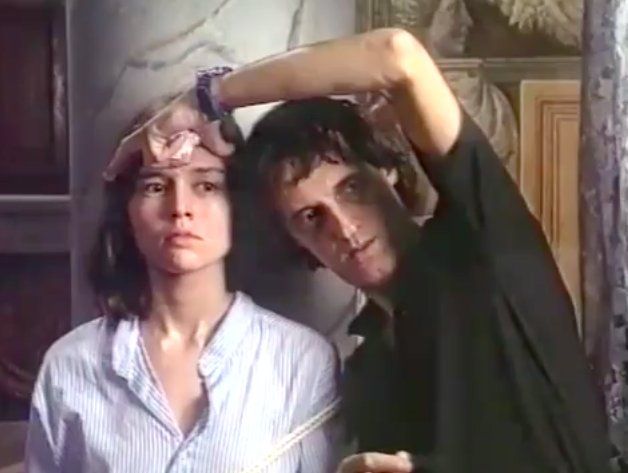‘Opera’ Actor Cristina Marsillach On Her Return To Acting [Exclusive]

Actor Cristina Marsillach has lived many lives. From collecting and selling art to running a theater school, she’s a renaissance woman, shifting through talents and skills with ease. But perhaps her most well-known life is that as an actor, specifically as the star in Dario Argento‘s 1987 horror film Opera who had needles strapped under her eyelids. But, since then, Marsillach stopped acting and moved on to other careers. Until now. After a 25-year hiatus, she’s returned to the screen in Damian Lahey‘s new film Simple Like Silver.
In her new film, “Having learned that she has a terminal illness, a woman (Marsillach) takes a final vacation only to discover a dreamlike triptych of fear, trauma, and murder.“
We spoke with Marsillach in an exclusive interview about working on Simple Like Silver, her horror legacy, and more.
Editor’s Note: This interview was facilitated by translator Alicia Lopez and edited for clarity.
Dread Central: What have you been up to since your acting hiatus?
Cristina Marsillach: I’ve been dedicating myself to developing other skills during this time. I’ve had numerous career changes over the past 20 years, from the acquisition and sale of 18th-century pieces and attending their respective fairs and trade shows to even spending some time in Italian clothing, commercialization, and trade, bringing Italian clothing to Spain. All this culminated with me running an English school for dramatic arts in Madrid’s old literary quarter. These frequent changes in my career are frequent among people with multiple talents. We thrive on these challenges and new opportunities.
DC: Wow, that’s amazing. What has been the most fascinating, rewarding, or most interesting for you besides acting?
CM: I can’t pick! [Laughs] Robert Green, a very famous author, speaks about people who are gifted and why they complicate themselves with these vulnerabilities and these impulses. And there are many people in the world that need to take these risks. At the end of the day, everything I’ve tried is all related to art. The school, the theater school, is a culmination of sorts since I come from a family of actors. So this is all very near and dear to my heart.
I also need the change. I was changing cities when I was working with antiques. I was in Bilbao, which is in the north of Spain, and I took many trips to England and France with my former partner to get these pieces. With the Italian clothing, I would go to Italy. I’m a person of action, of movement, and it enriched my life as an artist. It was like going to a gym, this constant movement and evolution. Side note, dance is also one of my passions. I never wait for opportunities to come knocking. Now I go and look for them.
DC: Oh, that’s amazing. That’s actually incredibly inspiring as an artist and creative myself. You’ve come back to acting with Simple Like Silver. What about that film inspired you to come back to acting?
CM: My parents were both actors, and I lived in this acting community as a child. I would do my homework in the backstage of the theater. So to me, acting is just as innate as breathing. Interpretation is something just so natural to me. Stepping on a stage feels like walking through my house, and I just feel very comfortable. So when I see an opportunity, I take it. I like to take as many opportunities as possible, as long as the script is there and the chemistry with the director is present. It’s also my way of giving back. And I try to give back as much as possible, so long as I see that I can work with the script and the director.
DC: That leads to my next question. I was curious what it was like working with the director, Damian Lahey, and your relationship with him throughout the collaboration.
CM: Damian has a mysterious ability to detect patterns and obstacles. So once he put his energy into a specific goal, nothing can stop him. He also has a great sense of humor, and he handles moments of great tension very well, and he’s very flexible. The sense of humor, to me, is so important because there’s a lot of tension in many situations when acting, especially in Simple Like Silver, there was a lot of movement. Tension puts a block on spontaneity, and that doesn’t allow for the acting to flow. So he has a great ability to ease this type of tension through his humor, and he’s able to focus on these objectives and was able to create parallel situations that actually better the dynamic of filming, for which I am very grateful.

DC: That’s amazing. So you grew up around actors. You’ve been acting for a long time. Was there anything that you learned about yourself or surprised yourself about when being on this film specifically?
CM: My experience with Damian surprised me a lot and it was a unique experience. Plus, I’ve never had to walk so many miles in a single day in the scorching Florida. I felt as if I was melting! I’d have to walk and be focused at the same time. And sometimes we’d go on for about four or five hours nonstop before lunch. But the result is there, and it’s a true joy for me. However, it is to say that I was forewarned before I got to Florida! I did some training and I prepared myself to walk.
DC: That’s amazing. Oh God. And Florida’s weather is gross too, so I can only imagine.
CM: I felt like Forrest Gump! [Laughs]

DC: So I am curious, how would you compare your experience on this film to your experience working on Opera?
CM: There is no possible comparison because Opera was a major production, and Damian’s was very small—it was originally a team of three, which then became four. The films were just two very different experiences emotionally and intellectually. Damien’s film can be considered one of the best movies ever made with such few resources, but that has a great artistic impact.
Both came with their sets of challenges, and you think the small production would be more relaxing, but it’s not. The hair and makeup would have to chase after us and walk as much as we did!
The focus at the end of the day has to be the same for me as an actress. But in a big production, there’s more people on top of you telling you where your marks are. The hair and makeup team isn’t walking around with them all the time. Then there’s the wires on the floor and the changing sets. Whereas in the small production, when one would move, they would all move. Sometimes even Damian would ask me to hold the camera for five minutes! But the focus of an actress has to be there 100%, regardless.
DC: What was that experience like for you as an actor to be in these heightened emotional states, especially with certain contraptions near your eyes as a performer?
CM: So it was very uncomfortable. [Laughs]
They would start filming at around 6:00 AM and once they would put these contraptions on my eyes, I might have to have the bond for hours. After they’d be taken off, I’d still have that sensation around my eyes, which was very shocking, but also did help me get inside the mind of my character. It helped me in some sort of way to live as the person, the character I was playing. It was all very physical. So all that realness, it did help create the terror on your face. And they didn’t mess around about the ropes.
DC: Oh my God.
CM: Those would be tight and I would leave sometimes with these rope marks, these red rope marks on my throat. But Dario is amazing, and he’s a perfectionist, as is Damian. They’re both perfectionists in their own ways. But in respect to working with Dario, he would make sure that the rope was exactly on the mark that he wanted it to be. It couldn’t be too high up on the neck or too low. It had to be just right. And he was on top of every detail, even the smaller details, but just every detail on set.

DC: What has it been like to realize how iconic that imagery has become among horror fans? Is that ever weird or strange to realize?
CM: I was very young at the time, and I had no idea of the repercussions that the film would have. I’ve never been a person to follow these types of films, although I do love Hitchcock films. I’ve seen a lot of films and psychological horror, but I just wasn’t aware of the genre that much at the time. I was fascinated with the crows. Everything was so grand, and I knew it was a big deal. Opera was a big production, and I knew how important Dario Argento was in this genre. But I had no idea at the time that it would become all this.
DC: So what’s next for you, Christina? I mean, you talked at the beginning about lots of different things and lots of different interests and being an artist. So what’s next?
CM: Well, okay, so first off, I’m very superstitious so I don’t want to say too much!
DC: Fair!
CM: I worked on a documentary last year about Opera. I can’t say too much, but I find it very interesting because Opera is my most important work. Every actor gets classified by maybe the one film that they’re known for, and I feel like I’m the Opera actress. So it’s possible that things might come to me along the way in the line of horror films. So obviously this is a genre that inevitably I’m a part of. And in this line of work, you have to be very patient and hope that everything flows, that everything lines up, and then suddenly, poof, you’re in the midst of it all. So there’s a project that may come along, but I still have no idea when it might come to fruition.
You can order the Simple Like Silver Blu-ray by emailing orders@severin-films.com. It’s also currently available to stream on Prime Video. You can also pre-order Severin’s special release of Opera here.
Categorized:Interviews

